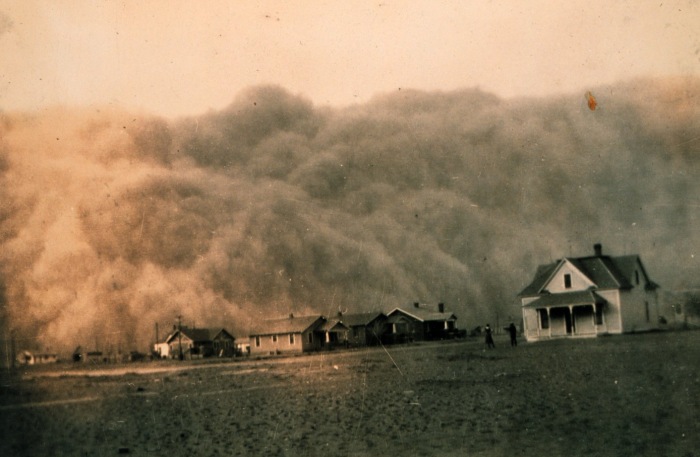And the little screaming fact that sounds through all history
 “And the great owners, who must lose their land in an upheaval, the great owners with access to history, with eyes to read history and to know the great fact: when property accumulates in too few hands it is taken away. And that companion fact: when a majority of the people are hungry and cold they will take by force what they need. And the little screaming fact that sounds through all history: repression works only to strengthen and knit the repressed.”
“And the great owners, who must lose their land in an upheaval, the great owners with access to history, with eyes to read history and to know the great fact: when property accumulates in too few hands it is taken away. And that companion fact: when a majority of the people are hungry and cold they will take by force what they need. And the little screaming fact that sounds through all history: repression works only to strengthen and knit the repressed.”
Heat wave as repression? Not an exact science. But something about the sweltering temperatures this weekend (the feeling of exodus, perhaps, but not migration) prompted a return to The Grapes of Wrath. 1936 was the year that set many of the record temperatures in the United States that we’re now dabbling in breaking; it was also the year of the coup d’etat that triggered the Spanish Civil War (farewell, Abraham Lincoln Brigade!), and a massive sit-down strike by the United Auto Workers in Flint, Michigan. In the middle of the Dust Bowl’s prairie-afflicted sandstorms and the Depression, our wealth inequality peaked and would remain at the highest levels the country had seen, until just prior to the Too Big to Fail crisis (2007).
In July of 1995, a similar wave struck Chicago. NASDAQ topped 1000, we tried to “disarm” Iraq, and a slow municipal response converged with the elderly poor living in the heart of the city, ushering in unprecendented deaths (over 700) and procedural calamity.
Eric Klinenberg’s Heat Wave: A Social Autopsy of a Disaster in Chicago explores the social, political, and institutional organs of the city that made this urban disaster so much worse than it ought to have been:
“Today if you ask Chicagoans about the heat wave they will likely tell you that not all the deaths were ‘really real.’ That’s a direct legacy of the politics of the disaster.”
More from Eric Klinenberg, in an interview that further engages the consequences of natural disaster, human error, and social unrest here.
